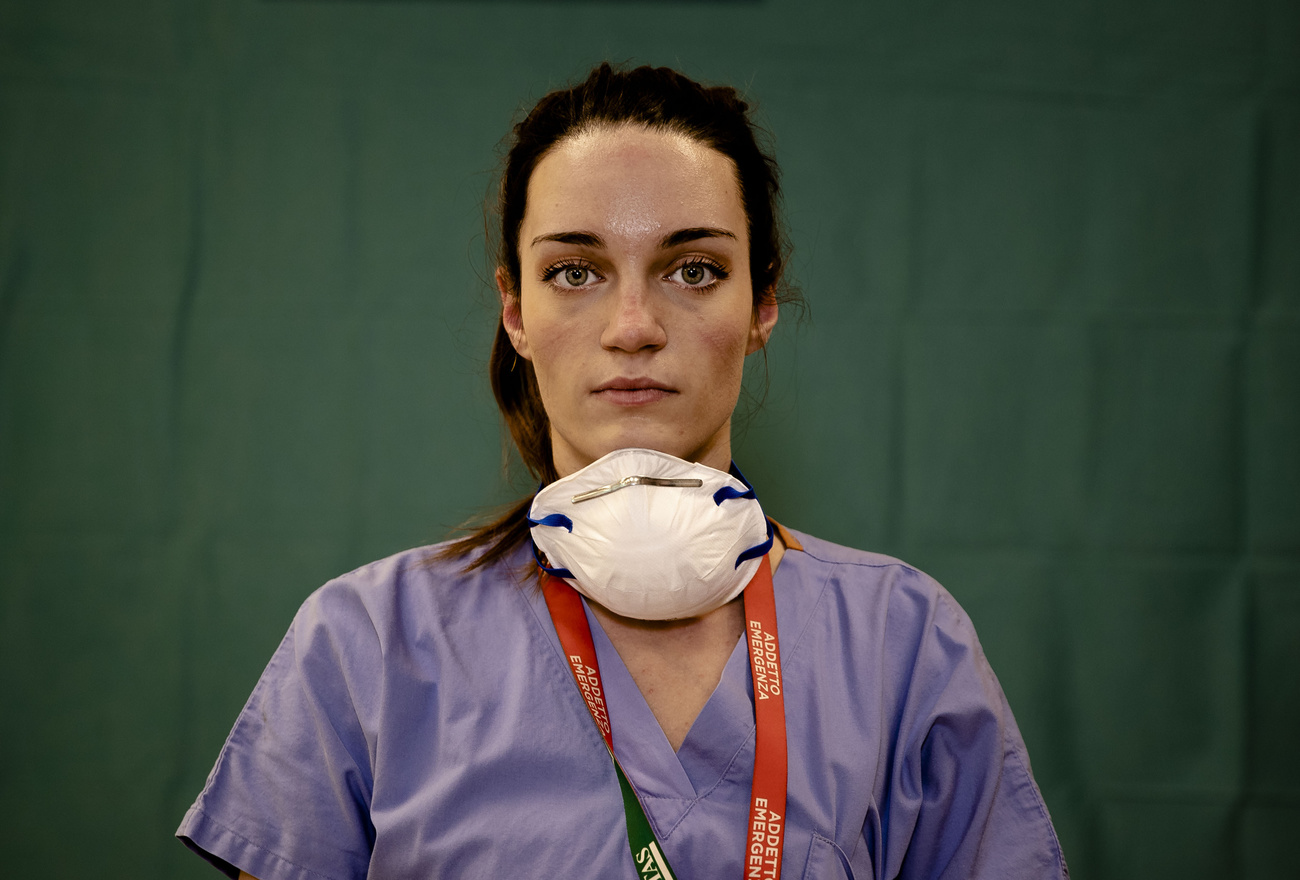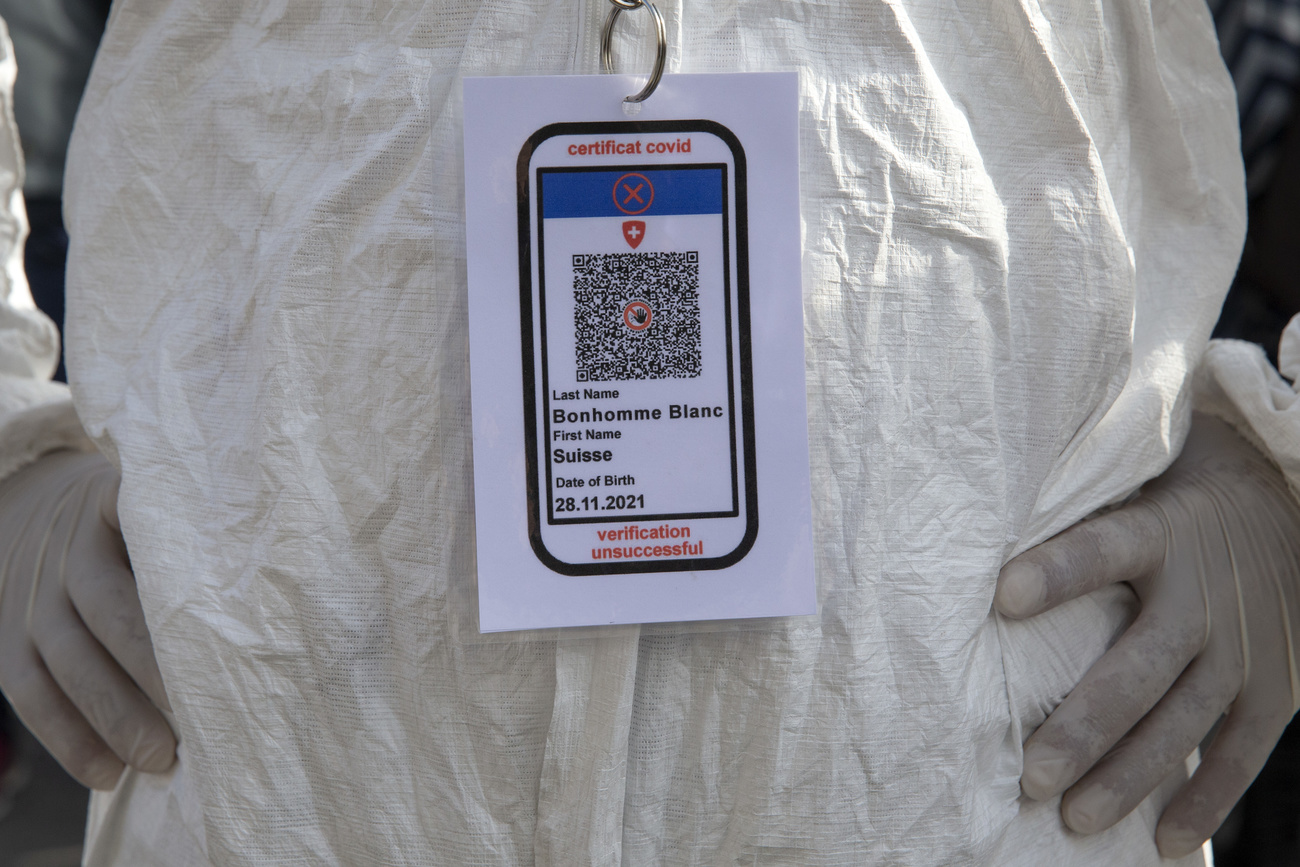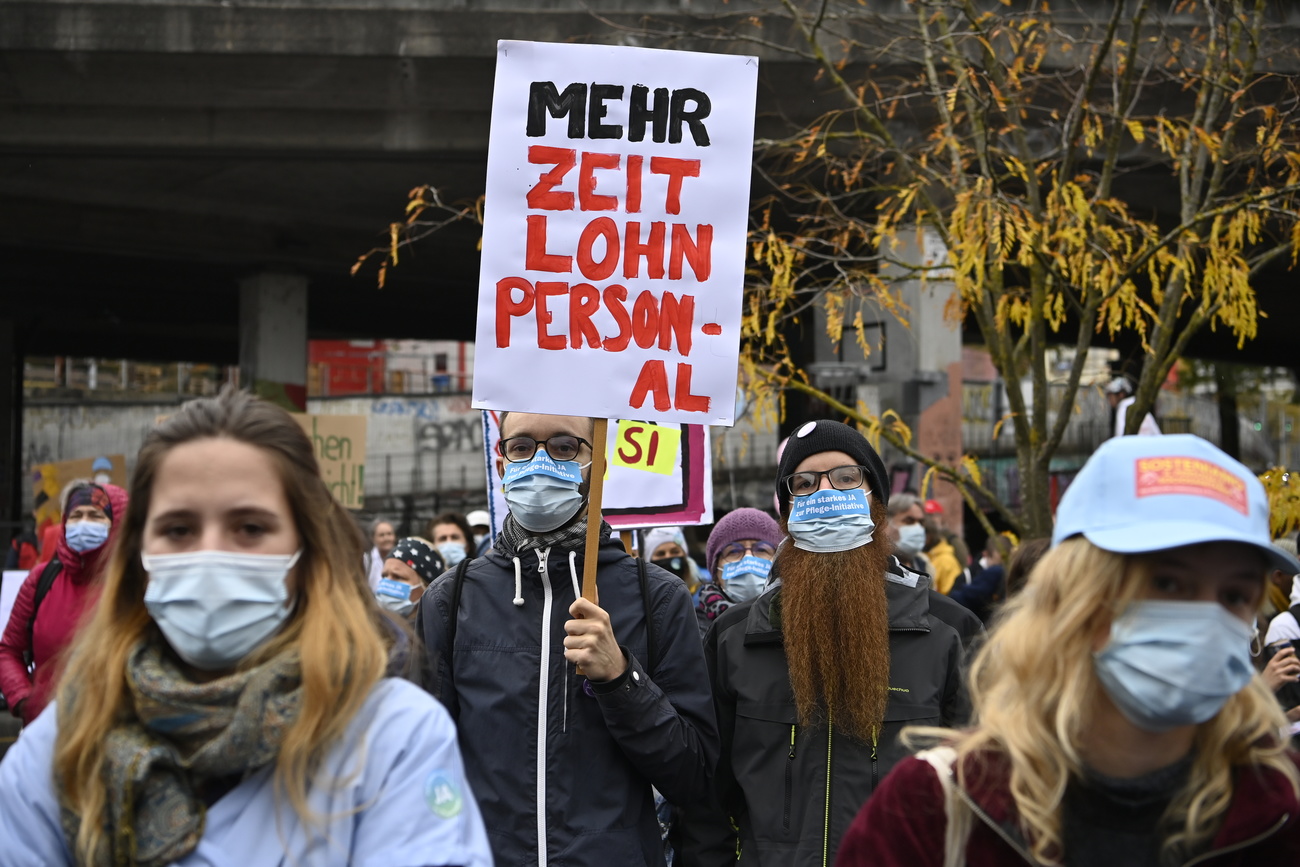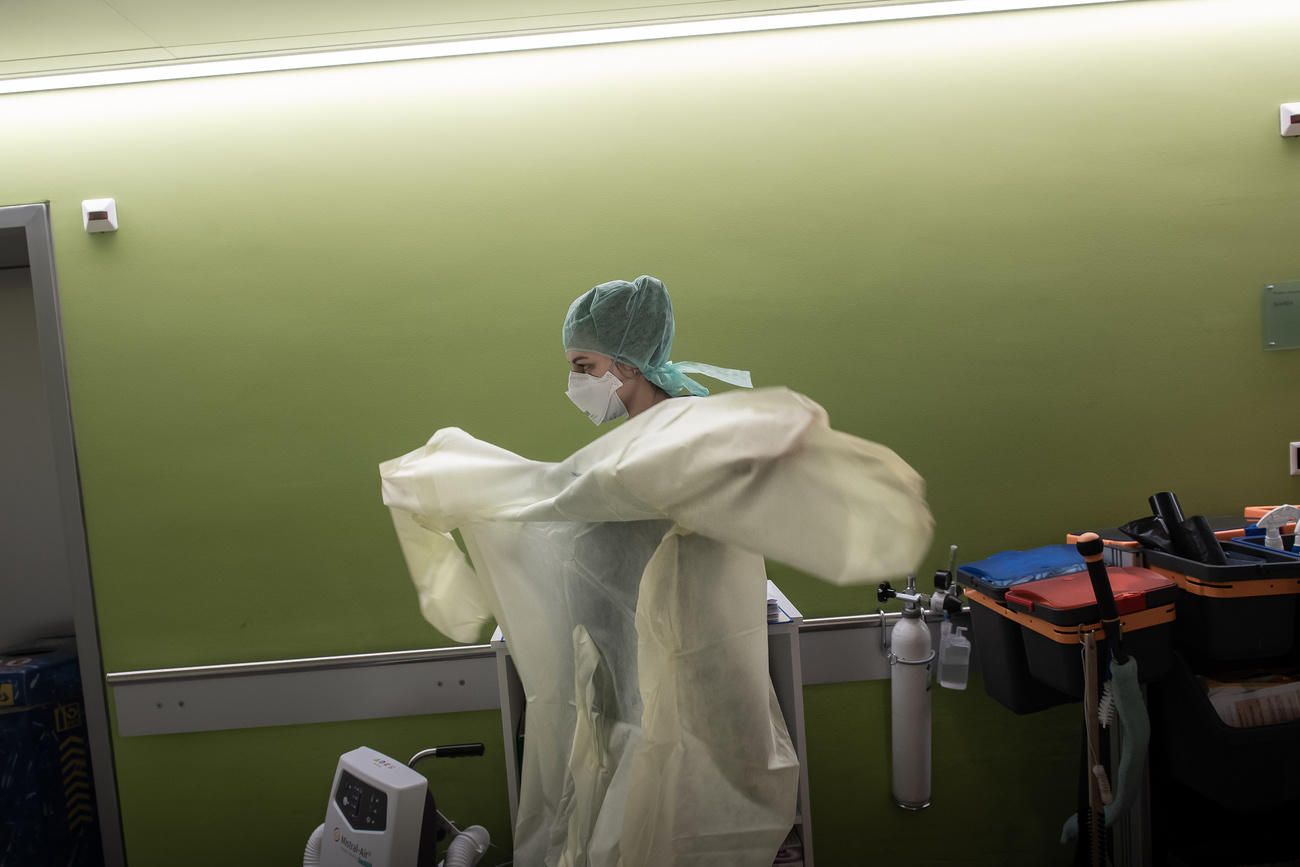Covid pandemic has been ‘devastating’ for Swiss nurses

The 2020 SWI swissinfo.ch survey on working conditions of nurses in hospitals in Switzerland painted a bleak picture of stress, discontentment and frustration. Nearly two years later, we take a look to see what – if anything – has changed in the wake of the coronavirus pandemic.
“Overtime is just about the norm.” “There is enormous pressure to save money. Doctors have a huge amount of work, too, but at least they are paid well.” “After a certain point you can’t go on and you just collapse, but that doesn’t interest the employer.” “If I could, I would go into another line of work.”
Those are some of the responses we heard from nurses in Swiss hospitals early last year. Even before the pandemic hit, many of them were telling us about a job described as exhausting with little recognition. They had chosen their profession as a calling or a passion, but with time they had become sorely disillusioned.

More
Nurses in Switzerland: stressed out and underpaid
A year and a half later, the situation is no better – on the contrary. “The pandemic has had a devastating effect,” says Pierre-André Wagner, head of the legal department of the Swiss Nurses’ Association.
‘We are exhausted’
Nurses coped fairly well with the first wave of the Sars-CoV-2 virus, because they hoped then that their efforts would quickly end the pandemic, says Wagner. “However, when the nurses realised that working conditions and pay were not going to improve, they were overcome by feelings of resignation, anger and frustration. The public applauded and recognised their contribution, but the politicians did nothing.”
Even more depressing was the “exodus” which followed. Nurses quit the profession one after another, leaving an increased workload for those who stayed on, notes Wagner. In intensive care wards, staffing has dropped by 10-15%.

More
On the frontline at a Swiss hospital battling Covid-19
Lockdown was needed to spare hospitals
“What has become quite clear is that when you talk about the importance of nurses to the system, you are not just talking about the health system but the functioning of society as a whole,” says Wagner.
“Even in normal circumstances, hospitals in Switzerland were operating to the limit of their capacity. With the pandemic, we had to lock down society to avoid overloading emergency and intensive care wards. But all this would not have been necessary if in previous years we had not made cuts to health care and if we had in fact increased the numbers of staff.”
On November 28, Swiss voters will decide on the people’s initiative “For strong nursing care”. The initiative launched by the Swiss Nurses’ Association calls for investment in training of qualified nursing staff in Switzerland and a guarantee of better working conditions. The aim of the initiative is to decrease dependence on third countries for staff and deal with increasing number of patients. Here you can find full details on the initiative and on parliament’s counter-proposal.
‘Paid too little’
The Swiss Health Observatory (OBSAN) finds that over 40% of nurses quit the profession early. A third of them are less than 35 years old.
Improvement of working conditions would help to put an end to this premature attrition and remedy the lack of qualified staff in the nursing field, according to a long-term studyExternal link published by the Zurich University of Applied Sciences ZHAW, published in late October.
The investigation suggests that working conditions don’t meet expectations. Six years after starting in the profession, nine degree-level nurses out of ten are prepared to work in the profession for another ten years, but only if working conditions improve, notes René Schaffert, who led the research.

The report reveals a gap between expectations and reality in other areas of the profession, notably pay.
“For nurses, good pay may not be the main issue, but they feel they are paid too little for what they do,” Schaffert points out. What’s more, 57% of those responding expected a greater degree of support from management. “This shows a strong need to be better appreciated by the employer and society at large,” he says.
Nurses find it hard to understand that all employer organisations in the healthcare sector oppose the initiative on nursing care (to be voted on on November 28), says Wagner. “Their position is a further source of frustration for us. The nurses feel betrayed by their own employers.”
The average salary in for degree-level nurses Switzerland is CHF7,429 ($8,010) a month (before deductions, but including the year-end bonus of a “13th month”); it is CHF5,433 for practical nurses and CHF5,120 for care assistants, according to government statistics. The Nurses’ Union disputes these figures.
French-language public broadcaster RTSExternal link contacted several hospitals in French-speaking Switzerland. The gross monthly salary varies there from CHF5,505 to CHF7,084 for nursing staff beginning their careers, and CHF8,078 to CHF9,491 for specialised nurses with 15 years of experience.
How to help nursing staff
Stefan Althaus, head of communication for the Swiss hospitals association (H+), confirms that the pandemic has had an effect on staff, who he says are “tired and worn out”. He also points to the lack of qualified staff, in particular in specialised areas like intensive care.
“However, we must not forget that society at large can help hospital staff a great deal just by making sure they get vaccinated. More vaccinations mean fewer hospitalisations,” he told SWI swissinfo.ch in an email.
The 2021 report from OBSAN on healthcare shows that efforts made on teaching and training have made a difference, but not a sufficient one yet. “The counter-proposal to the initiative on nursing care offers an immediate solution to remedy the shortfall of qualified staff,” Althaus said.
More
However, he says the need for better working conditions and more staff cannot be resolved at the constitutional level. What is needed is a dialogue between the social partners, and the creation of framework conditions on funding and pricing for hospitals in conformity with legislation on basic health insurance.
“Every time we call for improvement in working conditions or staffing levels, the response is always the same: there’s no money,” objects Wagner. For him, the problem is much wider and goes beyond the current health crisis. “The whole conception of our healthcare system is wrong: it is regarded as an economic sector with the goal of making a profit, when in fact it needs to be a public service.”
(Translated from Italian by Terence MacNamee)

In compliance with the JTI standards
More: SWI swissinfo.ch certified by the Journalism Trust Initiative


















Join the conversation!